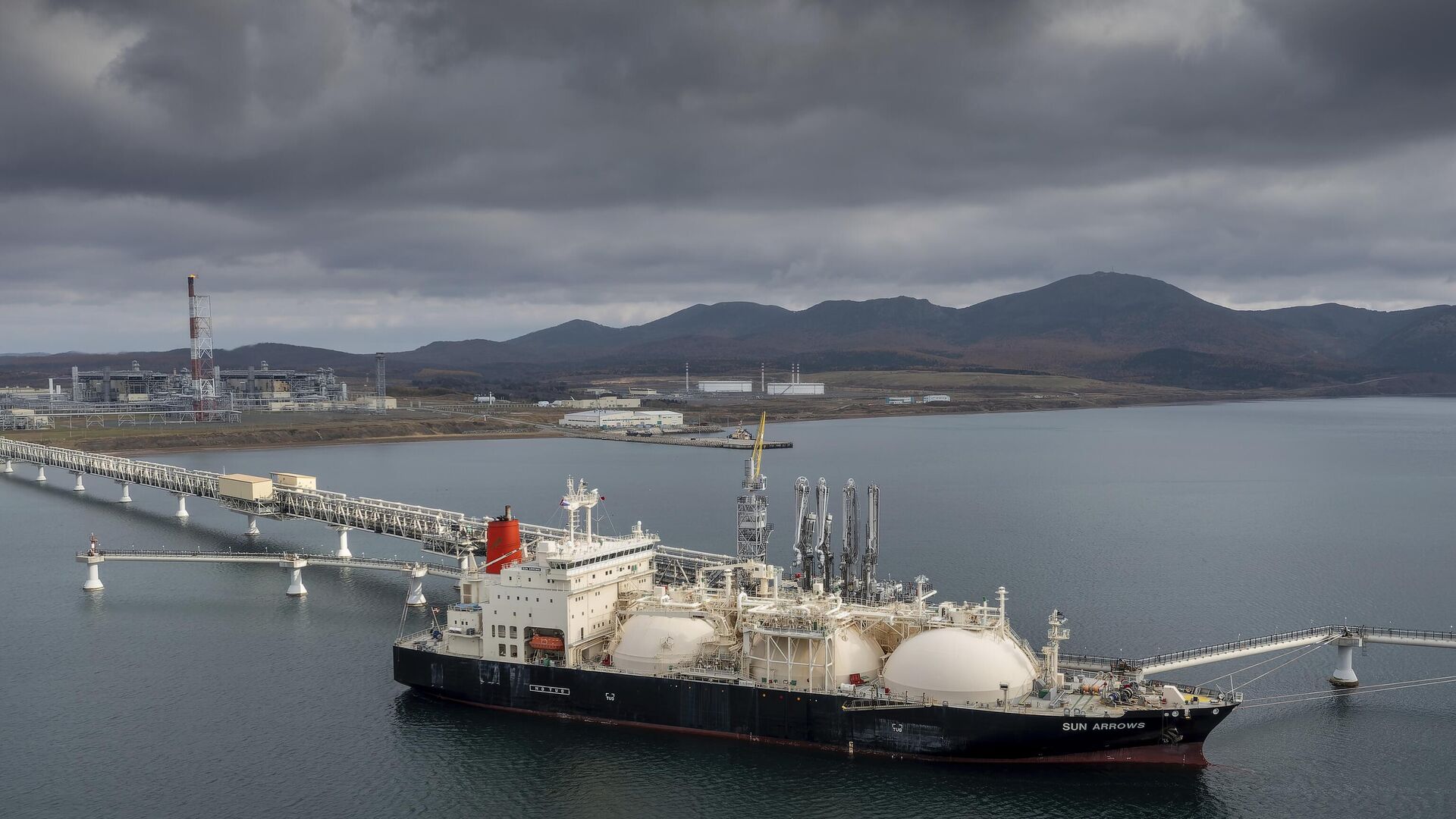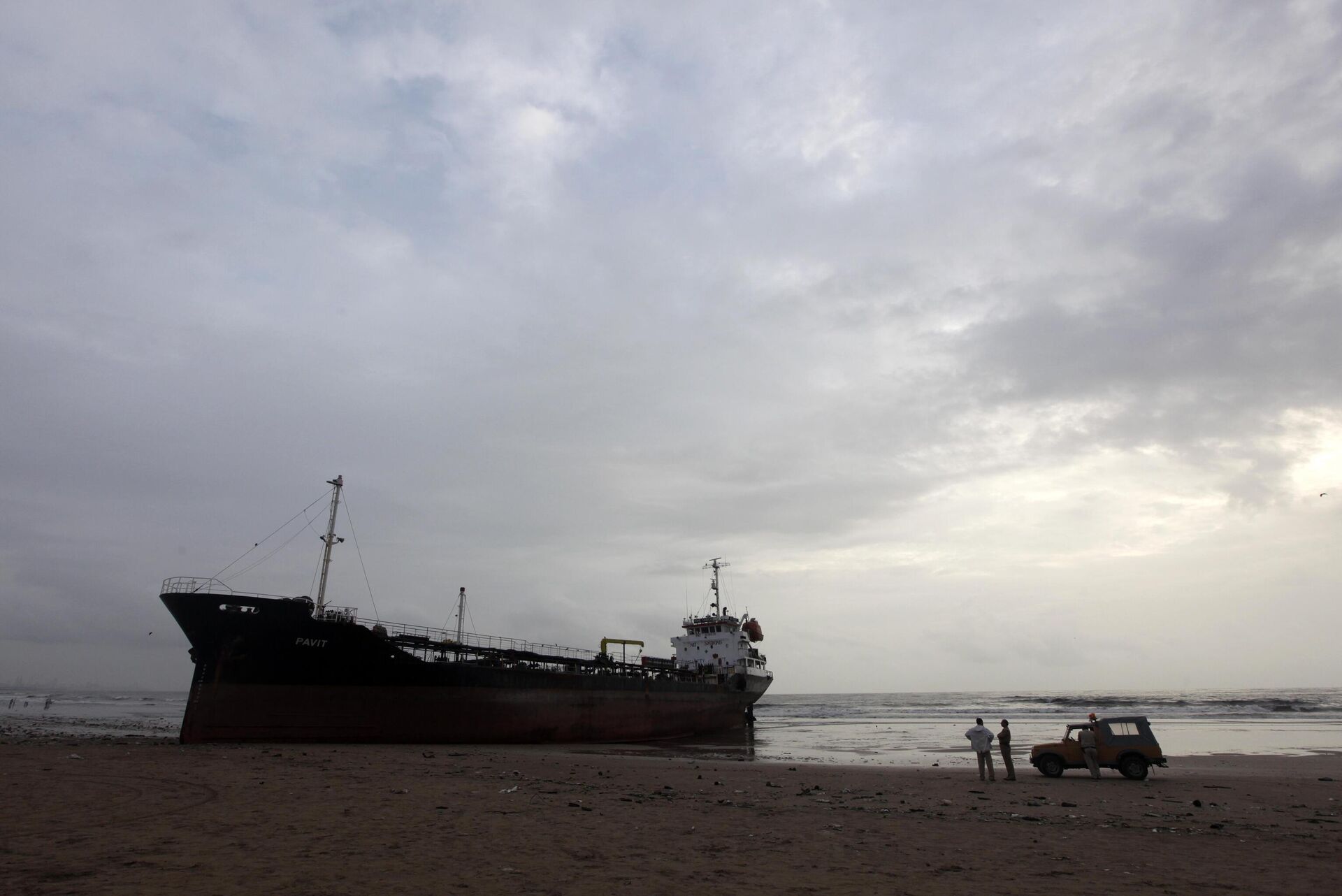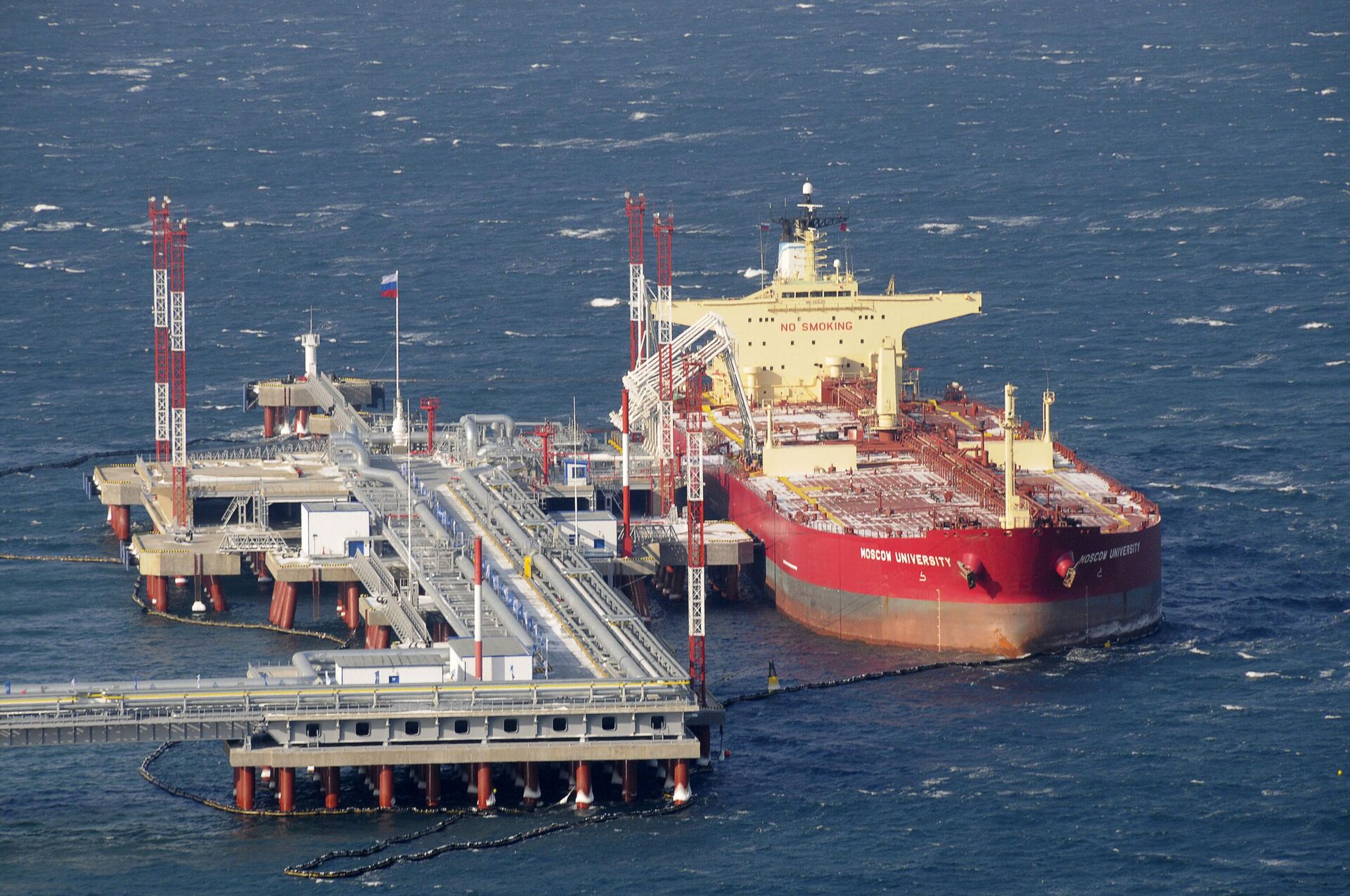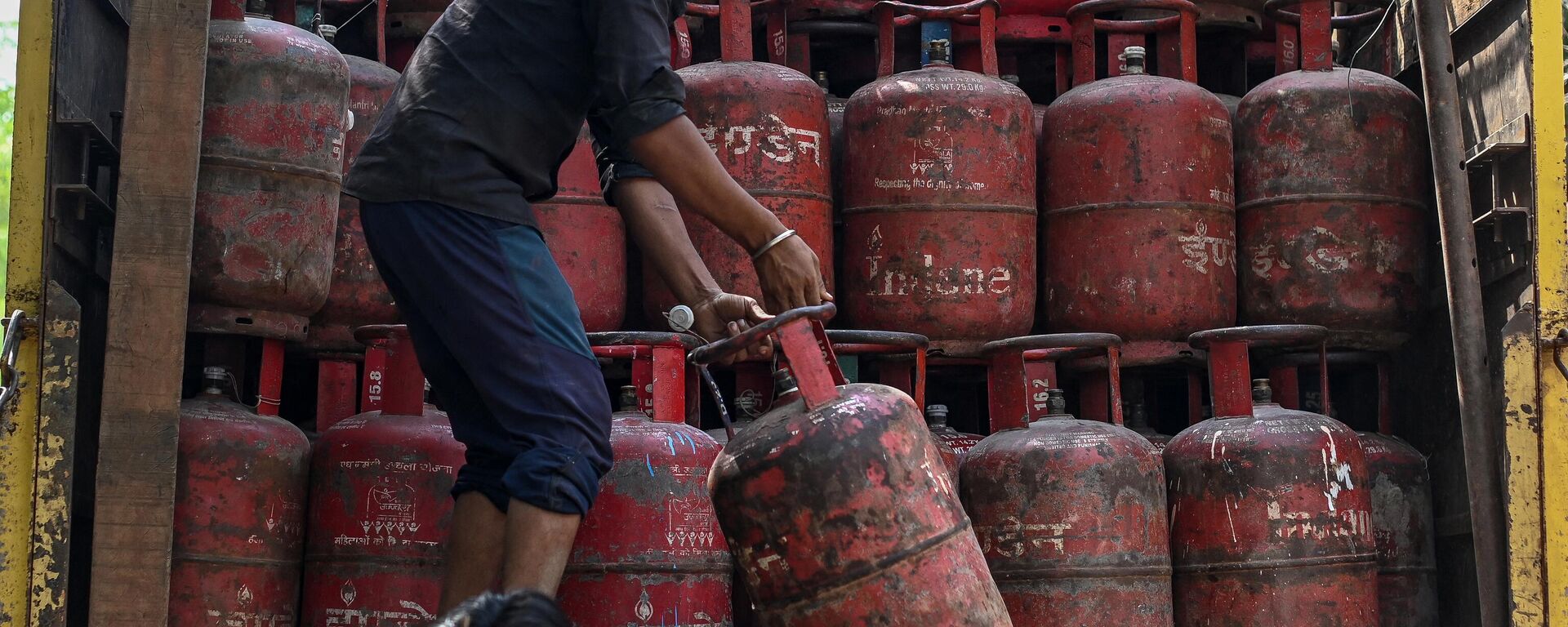https://sputniknews.in/20240216/ieas-anti-russia-agenda-endangers-indias-long-term-energy-interests-ex-envoy-warns-6568583.html
IEA's Anti-Russia Agenda Endangers India's Long-Term Energy Interests, Ex-Envoy Warns
IEA's Anti-Russia Agenda Endangers India's Long-Term Energy Interests, Ex-Envoy Warns
Sputnik India
The "political agenda" of the Paris-headquartered International Energy Agency (IEA) in embargoing Russia's global energy exports is fundamentally against India's long-term energy security, a veteran Indian diplomat has warned.
2024-02-16T17:14+0530
2024-02-16T17:14+0530
2024-02-16T17:14+0530
sputnik opinion
india
russia
new delhi
international energy agency (iea)
g7
narendra modi
western sanctions
westernization
us
https://cdn1.img.sputniknews.in/img/07e7/0c/1d/6026111_0:159:3073:1888_1920x0_80_0_0_034ba7a6e9e8859977929bb70f5676c8.jpg
The "political agenda" of the Paris-headquartered International Energy Agency (IEA) in embargoing Russia's global energy exports is fundamentally against India's long-term energy security, a veteran Indian diplomat has warned.Ambassador Talmiz Ahmad, India's former envoy to Saudi Arabia, Oman and the United Arab Emirates (UAE) and an Additional Secretary for International Cooperation in Petroleum Ministry, told Sputnik India that the IEA has placed a "political agenda" on the global energy governance.Russia has emerged as India's top supplier of crude since last year as it diverted it energy supplies to China, India and Turkiye in the wake of G7's embargo on Russian supplies following the special military operation in Ukraine in 2022.Meanwhile, the IEA Ministerial Communique said this week that it remained "resolute" in its efforts to "reduce our reliance on Russian energy and commodities".The ministerial was virtually addressed by Prime Minister Narendra Modi, who expressed hope that the IEA could "benefit" if India played a "bigger role" in it.However, Ahmad cautioned that there was very little or nothing in common between the IEA and India, as far as their long-term interests are concerned.What is IEA's Membership Criteria Problematic for India?The IEA currently comprises 31 countries, including the US and G7 states, thirteen associate members, which include nations like India and China, as well five accessory countries.The IEA membership terms mandate that in order to become a full member, a nation must be part of the Organisation for Economic Cooperation and Development (OECD), a grouping of rich nations.Other conditions to become an IEA member include pledges to maintain strategic crude reserves of 90 days, reducing oil consumption by 10 percent and "measures to ensure that all oil companies under its jurisdiction report information upon request".Further, the IEA has been pushing its member states to achieve net-zero emissions by 2050, as stated in the ministerial communique this week.India, much like the rest of the Global South, has time and against asserted that it had a very little role in contributing to global warming and its current per capital emissions were significantly lower than western polluting nations.'IEA's Terms Affect India's Strategic Autonomy'Importantly, Ahmad cautioned that IEA's terms potentially affect India's "strategic autonomy".He said that the "cabal approach" of the IEA has been very different from New Delhi's espoused policy with regards to energy security."India's fundamental approach to energy security, which was clearly articulated about two decades ago by the government of the day, was that energy producers and consumers weren't at war with each other and have very converging interests in maintaining the oil trade," he went on to highlight.The veteran diplomat also noted that New Delhi would find it difficult to maintain a strategic storage reserve of 90 days.According to official statements, India's current Strategic Petroleum Reserves (SPR) of nearly 6 million metric tonnes (MMT) would last only around two weeks, though New Delhi is developing more facilities to shield itself in case of future oil shock.Poised to grow at 6-7 percent in coming years, New Delhi is slated to account for the maximum crude demand in coming decades, according to IEA's own forecasts.
https://sputniknews.in/20230525/india-says-its-insulated-from-global-volatility-amid-record-crude-imports-from-russia-2164731.html
india
russia
new delhi
us
europe
eurasia
china
south asia
saudi arabia
gulf countries
persian gulf (arabian gulf)
Sputnik India
feedback.hindi@sputniknews.com
+74956456601
MIA „Rossiya Segodnya“
2024
Dhairya Maheshwari
https://cdn1.img.sputniknews.in/img/07e6/0c/13/138962_0:0:641:640_100x100_80_0_0_2cb44360dbcdf6d84bf4b299cd045917.jpg
Dhairya Maheshwari
https://cdn1.img.sputniknews.in/img/07e6/0c/13/138962_0:0:641:640_100x100_80_0_0_2cb44360dbcdf6d84bf4b299cd045917.jpg
News
en_IN
Sputnik India
feedback.hindi@sputniknews.com
+74956456601
MIA „Rossiya Segodnya“
Sputnik India
feedback.hindi@sputniknews.com
+74956456601
MIA „Rossiya Segodnya“
Dhairya Maheshwari
https://cdn1.img.sputniknews.in/img/07e6/0c/13/138962_0:0:641:640_100x100_80_0_0_2cb44360dbcdf6d84bf4b299cd045917.jpg
iea india, iea members, iea world energy outlook, iea report, iea headquarters, crude oil price, crude oil news, india crude oil imports by country 2023, india russia relations, russian crude exports, russian oil exports, russian oil exports to india, western sanctions on russia, g7 oil price cap
iea india, iea members, iea world energy outlook, iea report, iea headquarters, crude oil price, crude oil news, india crude oil imports by country 2023, india russia relations, russian crude exports, russian oil exports, russian oil exports to india, western sanctions on russia, g7 oil price cap
IEA's Anti-Russia Agenda Endangers India's Long-Term Energy Interests, Ex-Envoy Warns
The International Energy Agency (IEA) has said that it would begin talks with India on its request to become a full member of the west-backed group, which seeks to influence global energy governance.
The "political agenda" of the Paris-headquartered International Energy Agency (IEA) in embargoing Russia's global energy exports is fundamentally against India's long-term energy security, a veteran Indian diplomat has warned.
Ambassador Talmiz Ahmad, India's former envoy to Saudi Arabia, Oman and the United Arab Emirates (UAE) and an Additional Secretary for International Cooperation in Petroleum Ministry, told Sputnik India that the IEA has placed a "political agenda" on the global energy governance.
"They have placed an embargo on energy supplies from Russia. As we have seen, New Delhi has totally opposed this suggestion of western states. The Indian leadership has asserted that energy supplies from Russia serve our national interest and refused to buckle under western pressure," Ahmad pointed out.
Russia has emerged as
India's top supplier of crude since last year as it
diverted it energy supplies to China, India and Turkiye in the wake of G7's embargo on Russian supplies following the special military operation in Ukraine in 2022.
Meanwhile, the IEA Ministerial Communique said this week that it remained "resolute" in its efforts to "reduce our reliance on Russian energy and commodities".
The ministerial was virtually addressed by Prime Minister Narendra Modi, who expressed hope that the IEA could "benefit" if India played a "bigger role" in it.
However, Ahmad cautioned that there was very little or nothing in common between the IEA and India, as far as their long-term interests are concerned.
What is IEA's Membership Criteria Problematic for India?
The IEA currently comprises 31 countries, including the US and G7 states, thirteen associate members, which include nations like India and China, as well five accessory countries.
The IEA membership terms mandate that in order to become a full member, a nation must be part of the Organisation for Economic Cooperation and Development (OECD), a grouping of rich nations.
Other conditions to become an IEA member include pledges to maintain strategic crude reserves of 90 days, reducing oil consumption by 10 percent and "measures to ensure that all oil companies under its jurisdiction report information upon request".
Further, the IEA has been pushing its member states to achieve net-zero emissions by 2050, as stated in the ministerial communique this week.
Ahmad pointed out that none of the IEA's current goals are consistent with New Delhi's stated policies and long-term interests.
The Ambassador underscored that New Delhi wasn't a member of OECD. Further, he pointed out that New Delhi has clearly articulated that it was seeking to achieve net zero emissions by 2070, in line with its own long-term developmental needs.
India, much like the rest of the Global South, has time and against asserted that it had a
very little role in contributing to global warming and its current per capital emissions were significantly lower than western polluting nations.
'IEA's Terms Affect India's Strategic Autonomy'
Importantly, Ahmad cautioned that IEA's terms potentially
affect India's "strategic autonomy".
"India has always strived to maintain its strategic autonomy not only in its political and defence relationships, but also with regards to our energy decision-making," the ex-Indian official said.
He said that the "cabal approach" of the IEA has been very different from New Delhi's espoused policy with regards to energy security.
"India has been collaborating very closely with the Gulf states and now Russia to serve the mutual interest as far as the energy trade is concerned. Time and again, we have ensured that our interests are safeguarded in case of future oil shocks. As things stand today, we have our own strong energy relationship, strategic, political and economic ties with all the major oil producers," Ahmad stated.
"India's fundamental approach to energy security, which was clearly articulated about two decades ago by the government of the day, was that energy producers and consumers weren't at war with each other and have very converging interests in maintaining the oil trade," he went on to highlight.
The veteran diplomat also noted that New Delhi would find it difficult to maintain a strategic storage reserve of 90 days.
According to official statements, India's
current Strategic Petroleum Reserves (SPR) of nearly 6 million metric tonnes (MMT) would last only around two weeks, though New Delhi is developing more facilities to shield itself in case of future oil shock.
Poised to grow at 6-7 percent in coming years, New Delhi is slated to account for the maximum crude demand in coming decades, according to IEA's own forecasts.
"So, there is nothing common between India and the IEA member states economically or in terms of our long-term energy security interests," Ahmad concluded.





